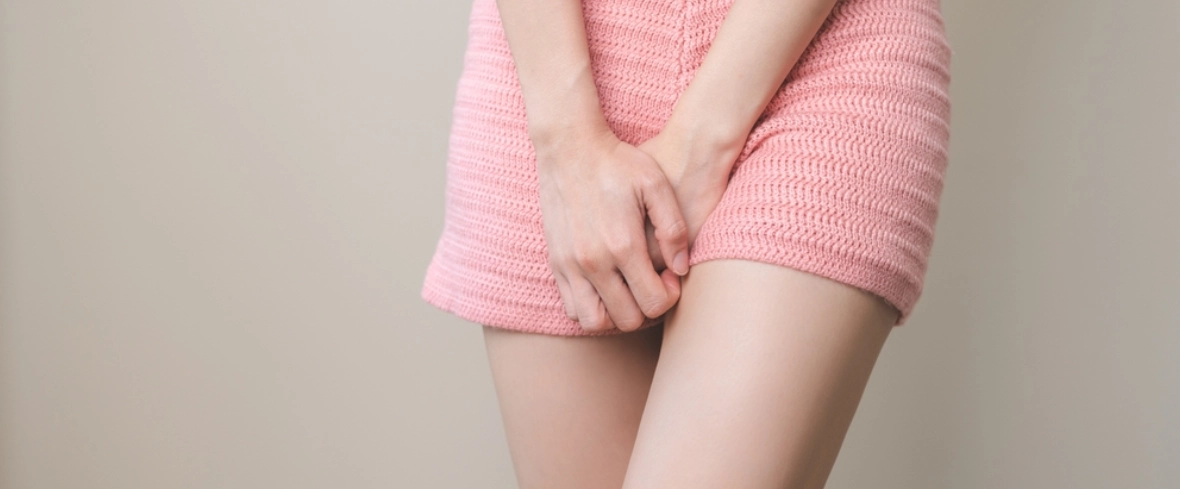Urinary incontinence in women is a common but often under-discussed condition that can significantly impact quality of life. While it is more commonly associated with aging, women of all ages may experience urinary incontinence due to various factors such as pregnancy, childbirth, menopause, or even lifestyle choices. In Navi Mumbai, particularly in areas like Panvel, Kharghar, and Vashi, urinary incontinence is becoming an increasingly recognized issue, yet many women still hesitate to seek help.
In this blog, we will explore the causes and symptoms of urinary incontinence, how it can be managed effectively, and why it’s essential to consult a urologist like Dr. Ajinkya Patil for timely intervention.
What is Urinary Incontinence?
Urinary incontinence refers to the involuntary leakage of urine. While it may seem like an embarrassing issue, it is more common than many people realize. The condition can range from a small leak when sneezing or coughing, to a more severe form where it becomes difficult to control urination. Urinary incontinence in women can occur due to a variety of factors that affect the bladder, urinary tract, and pelvic floor muscles.
Types of Urinary Incontinence:
- Stress Incontinence: The most common form in women, stress incontinence occurs when physical activities, such as laughing, coughing, or lifting heavy objects, put pressure on the bladder, causing leakage.
- Urge Incontinence: This type involves a sudden, intense urge to urinate, often followed by leakage before one can reach the bathroom.
- Overflow Incontinence: This occurs when the bladder doesn’t empty completely, leading to frequent dribbling of urine.
- Functional Incontinence: A person may experience urinary leakage due to physical or mental limitations, such as mobility issues or cognitive impairments.
Common Symptoms of Urinary Incontinence in Women
Women suffering from urinary incontinence often notice a variety of symptoms, which can vary based on the type and severity of the condition. These include:
- Frequent urination: The urge to urinate more often than usual, even during the night.
- Leaking urine: Accidental leakage when laughing, sneezing, coughing, or during physical activities.
- Urgency to urinate: A sudden, overwhelming urge to urinate that cannot be controlled.
- Difficulty holding urine: A feeling of not being able to make it to the bathroom in time.
- Nocturia: Waking up multiple times at night to urinate.
- Painful urination: This may occur in some cases, indicating an underlying infection or another condition.
Recognizing these symptoms and seeking treatment promptly can prevent the condition from worsening and improve the quality of life.
Causes and Risk Factors of Urinary Incontinence in Women
Several factors can contribute to the development of urinary incontinence in women. Some of the most common causes include:
- Pregnancy and Childbirth: Pregnancy puts stress on the pelvic floor muscles, and vaginal delivery can weaken the pelvic muscles, which support the bladder.
- Menopause: The decrease in estrogen levels after menopause can affect the urinary tract, causing weakening of the pelvic muscles and tissues, leading to incontinence.
- Obesity: Excess weight puts additional pressure on the bladder, leading to increased risk of stress incontinence.
- Chronic Coughing or Sneezing: Conditions like asthma, allergies, or smoking-related cough can weaken the pelvic muscles, contributing to stress incontinence.
- Urinary Tract Infections (UTIs): Infections in the urinary tract can irritate the bladder, leading to increased urgency and incontinence.
- Medical Conditions: Diabetes, stroke, and neurological disorders can affect the bladder’s ability to hold or release urine.
- Pelvic Floor Dysfunction: Weakness in the muscles and connective tissue that support the bladder and urethra may lead to incontinence.
Understanding the underlying causes of urinary incontinence helps urologists like Dr. Ajinkya Patil recommend the most appropriate treatment plan for each individual.
Is Urinary Incontinence Dangerous?
While urinary incontinence itself is not life-threatening, it can significantly affect a woman’s physical, emotional, and social well-being. Left untreated, urinary incontinence can lead to:
- Social Isolation: Fear of leakage or accidents may make women hesitant to participate in social or physical activities.
- Skin Problems: Prolonged exposure to moisture due to frequent leakage can cause skin irritation or rashes.
- Urinary Tract Infections: In some cases, incontinence can increase the risk of UTIs, as the bladder doesn’t empty fully.
If untreated, urinary incontinence may worsen over time, impacting a woman’s mental and emotional health, including increased anxiety, depression, and stress. Seeking early treatment with a urologist like Dr. Ajinkya Patil can help manage symptoms and improve quality of life.
When to See a Urologist Like Dr. Ajinkya Patil
It’s important to seek medical advice if you experience any of the following symptoms:
- Frequent leakage: Accidental urine leakage during normal daily activities or exercise.
- Urgency: A strong urge to urinate that leads to leakage before reaching the bathroom.
- Painful urination: Discomfort or pain while urinating.
- Blood in the urine: This could indicate a serious underlying condition such as an infection or bladder problem.
- Difficulty controlling urination: If you have trouble holding urine even for short periods.
In Navi Mumbai, especially in Panvel, Kharghar, and Vashi, Dr. Ajinkya Patil provides expert consultation and treatment for urinary incontinence. Early intervention can prevent the condition from worsening and improve your overall well-being.
Treatment Options for Urinary Incontinence in Navi Mumbai
Urinary incontinence can be treated effectively with various options, depending on the severity and type of incontinence. Dr. Ajinkya Patil offers several treatment options, including:
- Lifestyle Changes:
- Hydration: Drinking adequate water helps dilute urine and prevents irritation in the bladder.
- Diet: Avoid bladder irritants like caffeine, alcohol, and spicy foods, which can worsen symptoms.
- Weight Loss: Maintaining a healthy weight can reduce pressure on the bladder and improve symptoms.
- Medications: Certain medications can help manage urinary incontinence by relaxing the bladder muscles or improving bladder control.
- Pelvic Floor Exercises: Kegel exercises help strengthen the pelvic muscles, which can significantly reduce the symptoms of stress incontinence.
- Bladder Training: Bladder training techniques involve gradually increasing the time between urinations to help regain control over the bladder.
- Surgical Options: If conservative treatments fail, surgical options like sling procedures, bladder neck suspension, or nerve stimulation may be considered.
- Devices: Pessary devices may be used to support the bladder and prevent leakage.
Preventive Tips from Dr. Ajinkya Patil
Dr. Ajinkya Patil recommends the following practical tips to help prevent or manage urinary incontinence:
- Stay hydrated: Drink plenty of water, but avoid excess caffeine or alcohol.
- Practice Kegel exercises: Strengthening your pelvic floor muscles can improve bladder control.
- Avoid constipation: Eating fiber-rich foods and staying active can help prevent constipation, which can worsen incontinence.
- Seek treatment early: Consult a urologist for a timely diagnosis and effective management of incontinence.
Real-Life Case Study from Dr. Ajinkya Patil’s Clinic
Case Study: Ms. Priya, 38, from Panvel
Ms. Priya came to Dr. Ajinkya Patil with complaints of stress incontinence after the birth of her child. After an assessment, she was advised a combination of pelvic floor exercises and bladder training. Within six months, Ms. Priya experienced a significant improvement in her symptoms and regained confidence in social situations. She continues to maintain a healthy lifestyle and follows up with regular check-ups.
Frequently Asked Questions
Blog- How to Manage Urinary Incontinence in Women
Final Thoughts from Dr. Ajinkya Patil
Urinary incontinence may be a challenging condition, but it’s important to remember that help is available. Dr. Ajinkya Patil offers a range of treatments tailored to your individual needs, helping you regain control over your bladder and your life. Don’t let incontinence affect your daily activities—contact Dr. Patil for a consultation today!


Leave a Comment